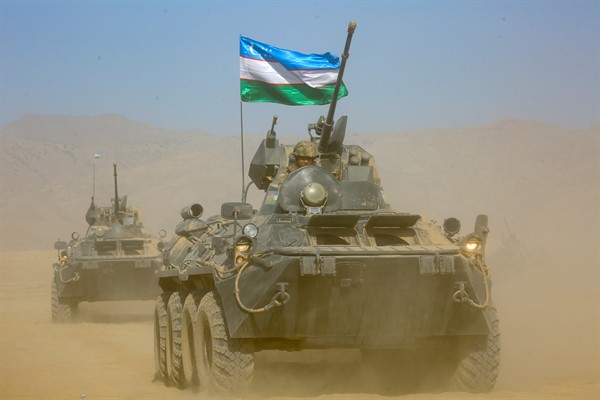The ongoing withdrawal of U.S. troops from Afghanistan is transforming diplomatic and security dynamics in Central Asia, creating opportunities for Russia and China to enhance their engagement with increasingly anxious governments in the region. The resurgence of the Taliban that began in the spring—and their takeover of large swaths of Afghanistan’s territory, including at least eight regional capitals so far—is unnerving senior officials in Central Asia.
Russia, meanwhile, is eager to take advantage of the U.S. withdrawal by shoring up its influence in Central Asia, enhancing its security footprint and preventing Washington from resuming military operations in any Central Asian state. China, too, is stepping up its diplomacy with Central Asia, increasing its bilateral security assistance with Kyrgyzstan and moving to enhance its influence and presence in Tajikistan, which shares a border with the sensitive Xinjiang region in northwestern China. The prospect of a Taliban victory or a civil war in Afghanistan, and its spillover into Central Asia, appears to be pushing Moscow, Beijing and Central Asian governments toward closer cooperation.
For Central Asian countries, the Taliban’s recent successes have raised fears that Afghanistan could reemerge as a magnet for extremists from the region and a sanctuary from which radical groups could target nearby countries. While the U.S.-led war in Afghanistan degraded Central Asian terrorist groups’ ability to operate there over much of the past two decades, militant extremists from Central Asia continue to find safe haven in the country. The Taliban even recently deployed some ethnic Tajik fighters along Afghanistan’s northern border. Therefore, Central Asian governments are now hedging their bets: In addition to asking Russia, China and the United States for help, they are reaching out to the Taliban, seeking assurances that Taliban fighters will neither target Central Asian states nor their interests in Afghanistan.

